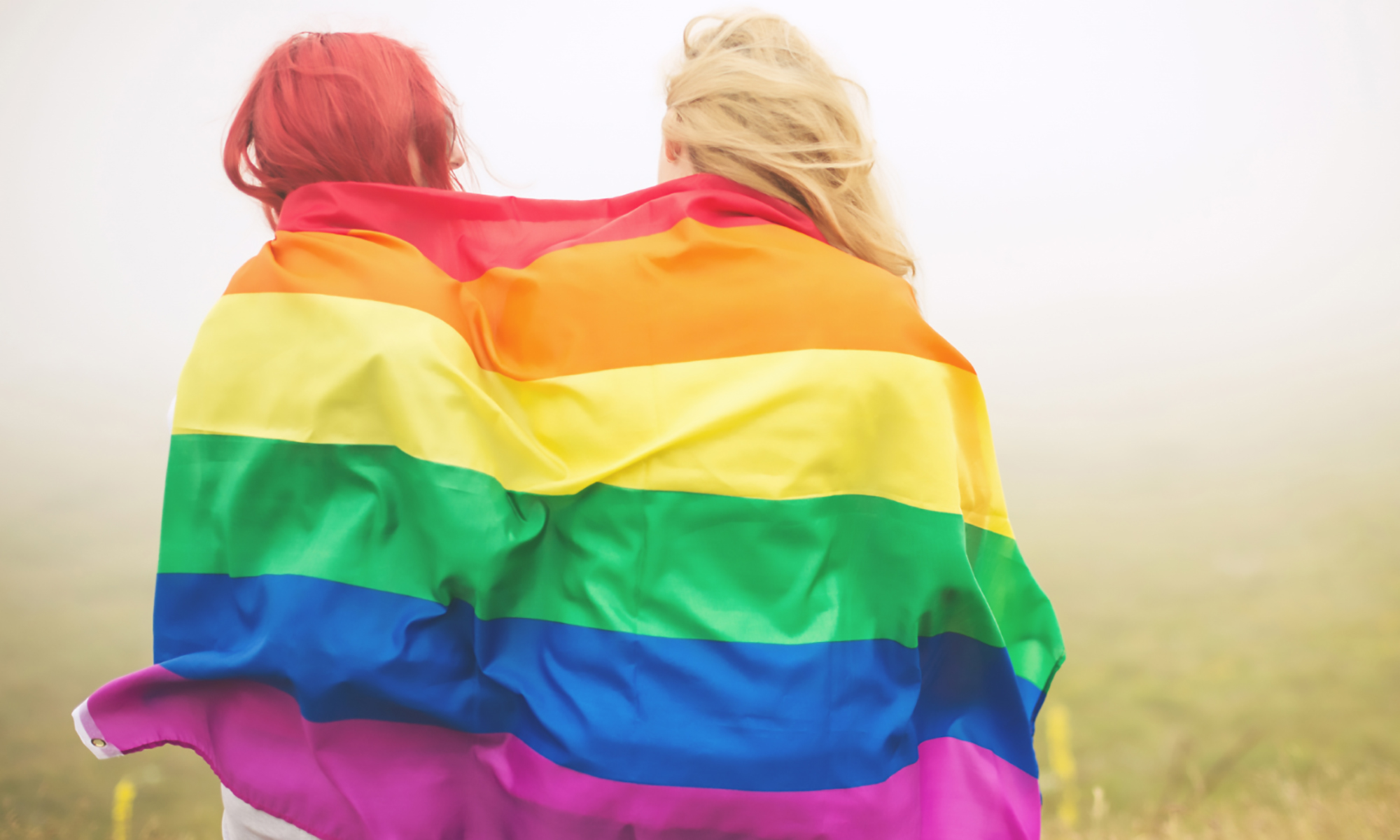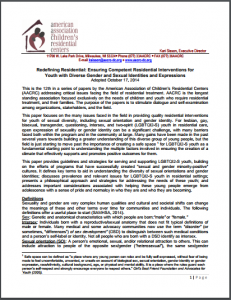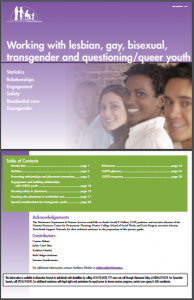This paper focuses on the many issues faced in the field in providing quality residential interventions for youth of sexual diversity, including sexual orientation and gender identity. For lesbian, gay, bisexual, transgender, questioning, intersex, and two-spirit (LGBTQI2-S) youth in residential care, open expression of sexuality or gender identity can be a significant challenge, with many barriers faced both within the program and in the community at large. This paper provides guidelines and strategies for serving and supporting LGBTQI2-S youth, building on the efforts of programs that have successfully created “sexual and gender minority-positive” cultures.
American Association of Children’s Residential Centers (2014)




